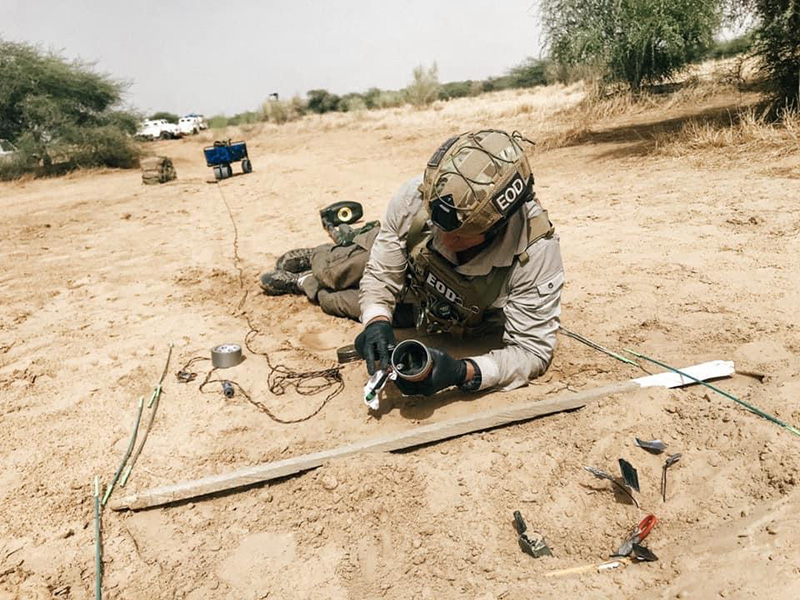Celebrating Digital Media Detection Dogs
Today we celebrate digital media detection dogs after Hertz, a German Shorthaired Pointer, won a PDSA Dickin medal.
In case you missed it – a clever (and very handsome) search dog named Hertz has won the animals’ equivalent of the Victoria Cross – the PDSA Dickin medal. Readers of our previous blogs will recall that Magawa (the landmine sniffing hero rat) was awarded a PDSA Gold Medal in 2020.
German Pointer Hertz was born in Croatia and joined the RAF Police when he was one year old. Hertz was then trained to detect personal electronic devices. In 2010, he and his handler were deployed to Afghanistan during the Afghanistan war. During this time, Hertz discovered more than 100 items of contraband.
He was awarded in recognition of his service for the RAF in Afghanistan. Hertz is the first dog in British military history to be recognised for his work detecting electronic communications equipment.
As such, we wanted to give you some technical insight into how Digital Media Detection Dogs are trained. Additionally, we wanted to find out (from the handler of another PDSA Dickin medal winner) what Hertz’s handler and trainer must be feeling as they take pride in their charge.
How are Digital Media Detection Dogs trained?
Canine Technical Manager Helen Clark explains:
“Digital Media Detection Dogs are trained to locate Triphenylphosphine Oxide (TPPO), the chemical compound commonly found in coatings applied to small electronic devices such as hard drives, USB sticks, SIM and SD cards. To our canine colleagues, TPPO may be just another scent which they are rewarded for finding. However, the skill of teaching the dog to search and locate such a small scent picture as TPPO lies with their trainers and handlers. To locate small scent pictures a dog must be able to concentrate on the task in hand and complete a focused methodical search.”
Helen talks more about the science of training search dogs in an episode of our subject matter expert video series – “#TheSafeLaneWay”.
Meanwhile, her fellow Canine Technical Manager Bob Crawford was a former handler and trainer of a PDSA Dickin medal winner, Jake, after whom SafeLane’s mascot is named.
We asked Bob how Hertz’s handler, WO Tanner, might be feeling:
“WO Tanner must be extremely proud of Hertz for his outstanding achievements and this success is testament to the training and time spent developing this amazing team. Similarly, I suspect WO Tanner will feel immense pride for all of his colleagues and their canine companions in the world of specialist search, as this prestigious award is a fitting recognition of the dedicated work they conduct every day to help keep us all safe.”
Bob talks more about training search dogs to be operationally excellent in our “#TheSafeLaneWay” series.
SafeLane supplies fully trained, experienced and proven canine teams to meet the detection and protection requirements of its humanitarian, commercial and governmental clients worldwide.
Like Hertz, SafeLane has extensive experience in Afghanistan. Most recently its explosive detection dog (EDD) teams were supporting multiple embassies in Kabul until August 2021. Teams covered entry control points and supported the wider security operations.
SafeLane’s operational teams currently supply the following services:
- Explosive detection - including for the detection of commercial, military or home-made explosives that might be used in an improvised explosive device
- Detection for weapons, small arms and ammunition
- Narcotics detection
- Currency detection and intruder prevention
If you’d like to know more about how our canine services can be tailored to support your project, contact us today.
Find out how we can help you


